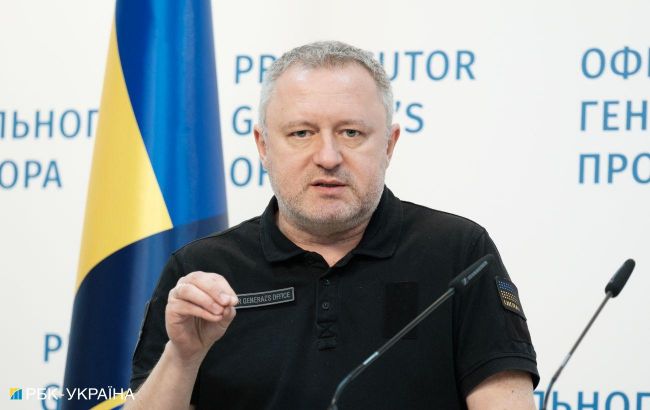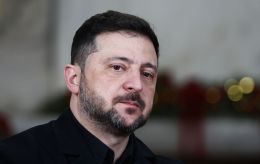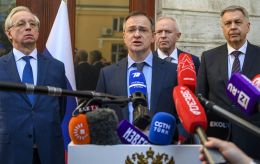Prosecutor General's Office of Ukraine investigates case of Russian genocide against Ukrainians
 Photo: Prosecutor General of Ukraine Andrii Kostin (Vitalii Nosach, RBC-Ukraine)
Photo: Prosecutor General of Ukraine Andrii Kostin (Vitalii Nosach, RBC-Ukraine)
Russia's crimes in the occupied Ukrainian territories, including the massacres in Bucha, demonstrate a pattern of genocide that should be addressed domestically and ultimately at the International Criminal Court. It's one big case, according to Ukraine's Prosecutor General Andrii Kostin.
Kostin made the statement two years after the massacre of civilians in the town of Bucha, shortly after Moscow launched a full-scale invasion on February 24, 2022.
The Prosecutor General's Office has recorded over 125,000 war crimes committed by Russian troops, thousands of them in Bucha.
The ICC issued an arrest warrant for Russian President Vladimir Putin for deporting Ukrainian children to Russia in 2023. In March of this year, it issued arrest warrants for crimes against humanity against Russian commanders for strikes on civilian infrastructure.
Two people have been convicted by Ukrainian courts for incitement to genocide, and one for spreading anti-Ukrainian propaganda, including calls for the drowning of Ukrainian children, but not for the overall genocide plan that Kostin is investigating.
Kremlin's only plan
In both the liberated and occupied territories, "we see the elements of genocide in many crimes committed, and we see them as a pattern of conduct of Russia," Kostin says on the sidelines of a justice conference in The Hague.
"We have the same type of crimes committed, the same torture chambers, the same killing, torturing, sexual violence, ill-treatment, forced illegal detention, forced deportation, looting. ..And all these crimes were committed by different military units, and throughout all this period of time," he says.
Taken together, there is now a broader body of evidence to support a genocide prosecution, Kostin said, which should go up the chain of command to Russia's military and political leadership and face prosecution in Ukraine and The Hague.
"We can do both, and we will do both with regard to each and every crime," he says.
The crimes were repeated after Bucha, even after the events were widely covered in the media, making it impossible for Russian leaders to later claim they were unaware they were going on, Kostin says.
"We are working on building the big case of genocide" for the sake of the victims and survivors, he says.
"For Ukrainians, it would be very important to see a verdict on genocide in international courts, but this requires long preparatory work and very substantial investigation," he adds.
Genocide
Moscow has repeatedly committed genocide against the people of the occupied countries. Millions of Ukrainians were killed and starved to death.
The Holodomor of 1932-1933 was carried out by the USSR leadership to subdue Ukrainians and suppress resistance to the Soviet regime. In 2006, Ukraine recognized it as genocide by law, and in 2010, a court ruling proved the intention of Joseph Stalin and his associates to destroy part of the Ukrainian nation.
In November 2023, 92% of citizens believed that the Holodomor of 1932-33 was a genocide of the Ukrainian people.
According to the Levada Center, most Russians support the war against Ukraine. In January 2024, only 16% of respondents oppose it, while another 8% are not sure.
One-third of Russians believe that people like them are morally responsible for the deaths of civilians and destruction in Ukraine, while 62% of respondents share the opposite position. This distribution of responses is stable and has been maintained over the past year and a half.

